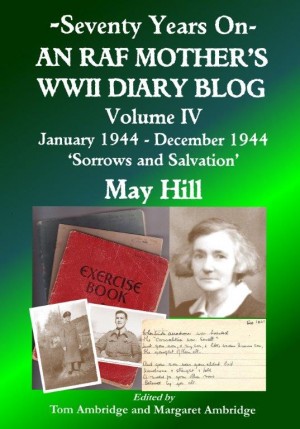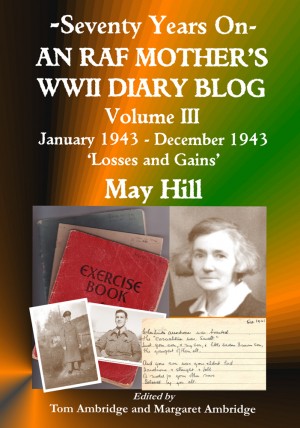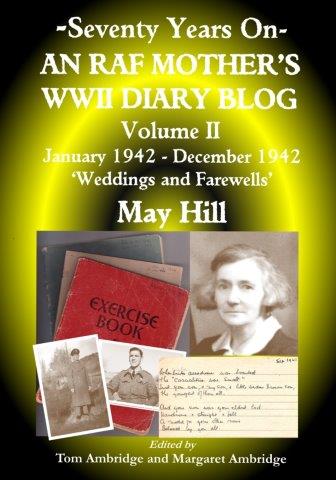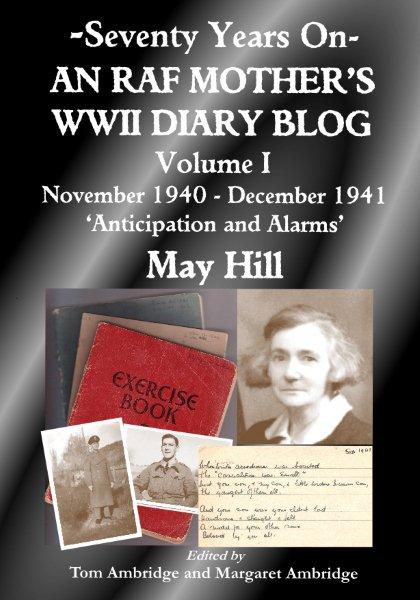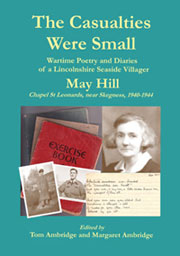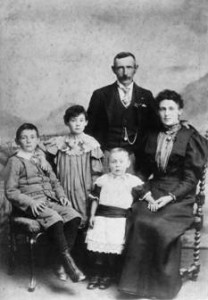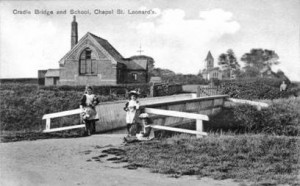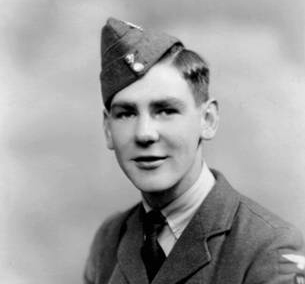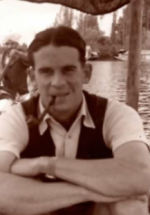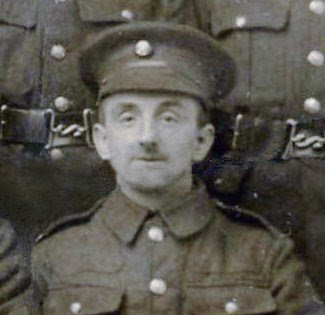Events seem to crowd upon us thicker and faster. I caught another cold and am only just getting well again. This week I really begin to feel able to work again and cleaned all the bedrooms today and bath-room and stairs. Harriet and Ivy came this afternoon for a few minutes. Ivy is getting quite plump again. Told us news of Annie. All very pleased. We told her our news of Rene’s wedding which is to be 21st Oct. if all is well (Father’s birthday).
Ron was home last week from Mon until Friday night. Emmie came on Sun. night until Sat morn. It slipped by like the elvers slipped thro’ my fingers when I was a child. We strove in vain to grasp the hours and keep them. He came to Peterboro’ from I.O.M. 3 weeks ago and this was probably embarkation leave. It was so nice to see him again. We saw so little of him in Aug. and had so looked forward to this leave. We had a quiet day with him on Friday. They did not go out and we sang a bit in the afternoon, Emmie and Jean playing the piano. His favourite hymn “Lord of all being” that he used to sing at school and “The Church’s one Foundation”. Emmie bought him a bible (with illustration) and a belt with purse and we all gave him a writing case, not just what we wanted but what we could get. It was 8/6. We had collected about 2lbs choc which we packed in a tin for him to take away if he goes soon. He may get again to us or to Emmie’s. If possible he will come for the wedding which is to be very quiet. We took him to Sk[egness] station to catch 5.30 train and sent him off with a smile. Emmie is very brave. She said she once saw a woman in great distress saying “Goodbye” and her husband was so upset, that she made up her mind to shed all her tears at home and send Ron off gaily.
The new friends made in war-time (I don’t mean cook particularly) are one of its great compensations. Our outlook is broadened and our prejudices softened and we learn to give and take more and see the other’s point of view. Mrs Brown came for the day on Monday. It turned out wet and Father took her home in the car. She was very affable. Ron and Emmie went to see her while they were here. Had a letter from Emmie Tues. Must answer it. She arrived home a little before 4 o’ clock. A tedious journey as she left here at 8 a.m.
The news was of niece Annie Faulkner’s pregnancy. (See 9 Feb. 1942.)
Elvers are young eels. May’s descriptive prose reflection ‘Elvers’ recalled a childhood experience and related it to her more recent thoughts.
Ron was briefly stationed near Peterborough before being posted abroad.
Rose Brown, Eardley’s wife, was probably meant here (see 31 Jan. 1941).
Have you read an introduction to May Hill & family (includes photographs) and explored ‘The Casualties Were Small’?

